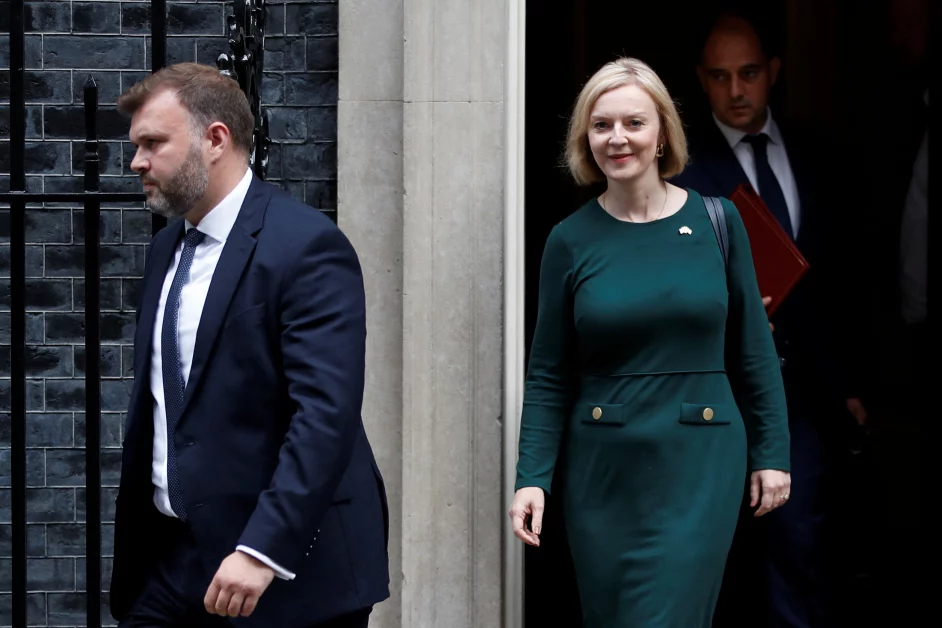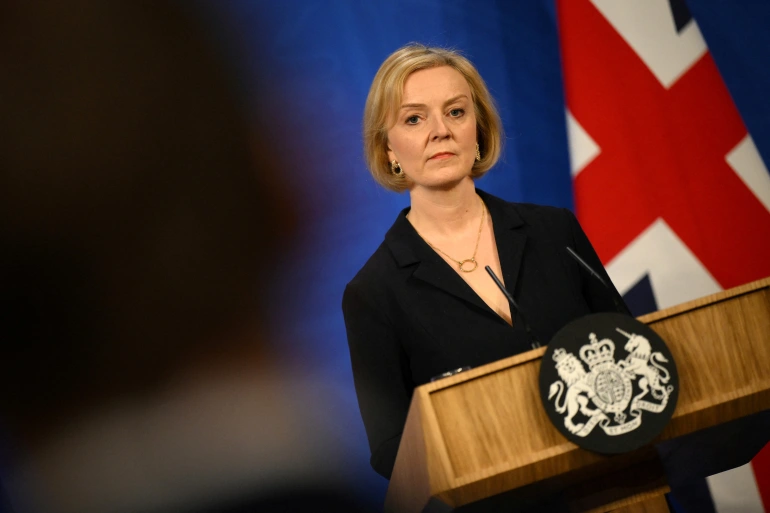Britain Stumbles as Prime Minister Liz Truss resigns from office only 6 weeks after being appointed by the late Queen of England, Elizabeth II.
The British Prime Minister Liz Truss on Thursday announced that she is stepping down from the office of British Prime minister, this followed a disagreement that spurred around her economic plans and led to the split of her Conservative party.
Truss came to office at a time when UK was experiencing a fall in the economy, with energy bills that threatened to jump to 80 percent by October and rise again in January.
The economic condition has sent cold chills to Millions of Britons with no power and heat in their homes and, already stumbling from inflation and spiralling into impoverishment.
Liz expressed her signature economic plans including, tax reduction, deregulation, and borrowing, which immediately startled global investors on the depreciated value of the British Pound, forcing The Bank of England to step in to calm the market and restore government bonds.

After noticing that her free-market ambitions would fail, she had to reverse virtually all the tax cuts this week, to high earners as well.
Liz fired the chancellor of the Exchequer Kwasi Kwarteng, the plan architect and a close ally who adopted economic policies favoured by the opposition Labour party.
“You cannot engage in the sort of U-turn that she has engaged in and retain your political credibility,” said Jon Tonge, a professor of politics at the University of Liverpool.
Truss’ tenure comes under threat
Her concessions contributed less effort in mollifying and stirring rebuff from within her party, which had the power to overturn her as they did to Boris Johnson.
The Tories (Conservatives) had witnessed their popularity decline in public opinion polls after Boris Johnson’s scandals, and their numbers cratered to staggering new lows as Truss stumbled.
This week Redfield & Wilton Strategies poll, reveals the first lowest approval rating for a prime minister, with 70% disapproving Truss, inclusive of 67% of Conservatives.
The poll reported that if a General Election was held today, only 20% would vote Conservative and 56% would vote Labour.
The Conservative Party’s dissatisfaction surged and she was surrounded with a noticeable sense of crisis, which eventually escalated to a frantic fight for her survival on Wednesday.
“I’m a fighter and not a quitter,” she said while being grilled by members of Parliament.
Suella Braverman, Britain’s interior minister, stepped down after an email breach, taking a swipe at Truss in her resignation letter, saying she had concerns about the direction of this government.
A vote on fracking in Parliament roused a scene of bullying, shouting, physical manhandling, and tears.
More Conservative members of Parliament openly called for Truss to resign.
“In short, it is total, absolute, abject chaos,” a news announcer said on ITV.
Charles Walker, a Conservative lawmaker, did not hold back in an interview on BBC.
On Thursday, Liz Truss confirmed her resignation to the king, with a new leadership election planned within a week.
What’s next for Britain?
Truss is to remain the British Prime minister until her successor is chosen.
In her resignation remarks, Truss noted that a leadership election would be held in the next week, bringing Britain its second unelected leader in a row.
The next British General Election to involve public participation and an opportunity for Labour to take control is scheduled for January 2025 at the latest.
Conservative party cannot call for an immediate poll, for chances of being dominated by the Labour party are high.
Subscribe to our You Tube Channel at Switch TV.
“One advantage Conservatives have is time, as the party could theoretically regain credibility if the economy recovers in the following years”, Tonge noted.
“I don’t think changing the leader will necessarily save the Conservatives,” he said. “But you can engage in damage limitation by doing so.”
















